
VACCINE
11-05-2021 by Freddie del Curatolo
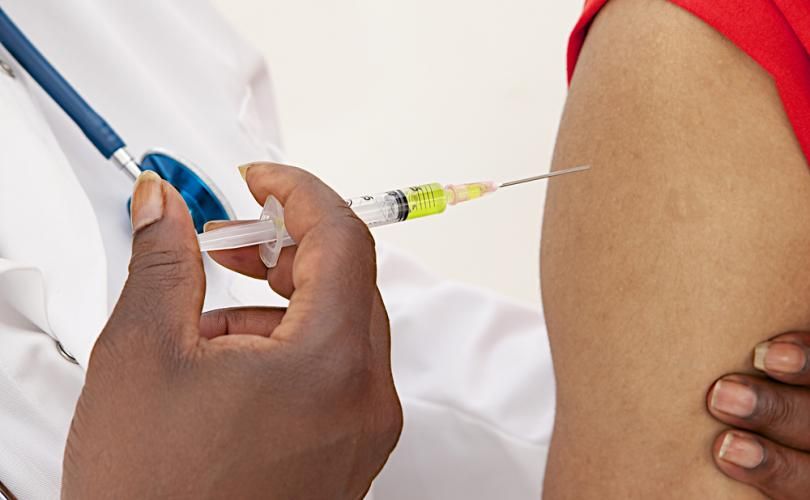
Fears of the entry of the Indian variant aside (South Africa has reported dozens of homes these days and flights are still open) Kenya does not have much to fear from Covid-19 infections at this particular time. Requests for swabs from symptomatic people are at an all-time low and consequently also the tests carried out on relatives or people who have come into contact with sick people.
Yesterday, it was back to its lowest level ever, with only 66 cases and 1833 swabs, with a record (positive) rate of 3.6% in 2021.
Now it is the vaccinations that are worrying, and they are proceeding very slowly. Not only that, but there are no indications of a second supply by the Covax programme, nor of a direct purchase by the Kenyan government from pharmaceutical companies.
The first expenditure should in fact concern two new Chinese vaccines that the World Health Organisation has deemed compatible with the AstraZeneca one, which was the first dose received by almost 1 million Kenyans and foreign residents.
With these 'pole rates' Kenya risks not only falling behind other destinations that will be considered more attractive as travel destinations, but also exposing a large part of its population to the virus. What will happen when Europeans, Americans and some Asians are vaccinated and a very low percentage of Kenyans are?
In a recent webinar for the presentation of the book 'Pandemic in Africa', immunologist Vittorio Colizzi, director of the African Relation Centre and the Journal of Public Health in Africa, sounded the alarm about the future of the continent and its peoples. "What will happen when three quarters of the western population is vaccinated and almost nobody in Africa is? - he asked the Professor - let us hope that we do not have to witness an importation of the virus from outside, after the continent has reacted better than others in catching it with serious effects, for various reasons, but also in containing it".
The impression is that not only the WHO, but also the governments of African countries themselves are taking the situation in their stride, waiting for more help from various quarters before organising themselves to immunise their citizens.
Yesterday in Kenya, the protest also came from the tourism sector on the coast, which after informally inviting hospitality employees to get vaccinated, received no response on the continuity of the service. This was especially the case in Kilifi County, where practically no tourism workers, except those over 58 years of age, have been vaccinated. Unlike in Nairobi and adjoining counties, where the event was announced and promoted with pomp and circumstance by Tourism Minister Najib Balala, and even in Mombasa where some facilities had access.
We do not understand why Kilifi has been ignored by this necessary campaign," explained the chairlady of the Kenya Association of Hotel Keepers and Caterers, Maureen Awuor. "In Nairobi, those working in tourism have already received the vaccine and we are still waiting. I have personally sought clarification from our County Minister of Tourism but I have yet to receive any response."
The tourism sector is one of the glaring examples of how Kenya could be left behind and suffer from this situation. Other tourist destinations are fast-tracking to declare themselves 'covid free' in their promotion with travel agencies and websites. But not only that, should vaccinated tourists want to come to Kenya, it would be dangerous for those working in hotels and restaurants if Kenya accepts vaccine passports. And in the event that it could not or would not ratify it as a means of travel without the need to swab, it would certainly have less appeal than other countries. It is to be hoped, therefore, that the speed with which the hospitality industry was vaccinated in the Maasai Mara, at the gates of the great migration, and in the capital, will be replicated as soon as possible on the coast, which would like to resume welcoming foreign tourists as soon as possible.
NEWS
by redazione
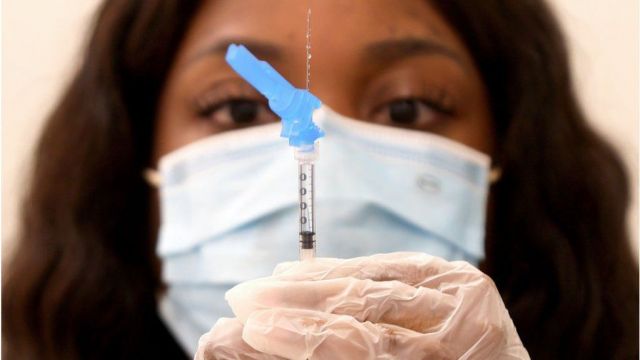
From the United States comes the hope that African populations can be almost...
NEWS
by redazione
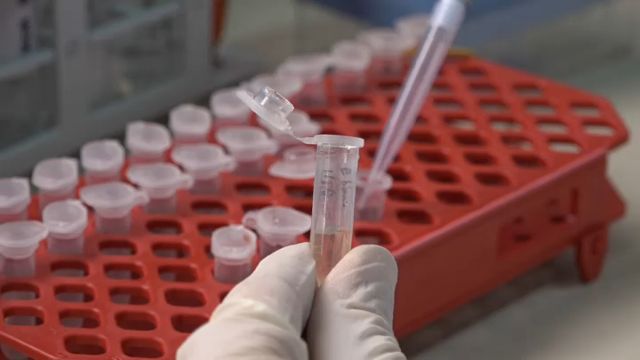
The Ministry of Health has decided that the booster vaccines administered so far, which number...
NEWS
by redazione
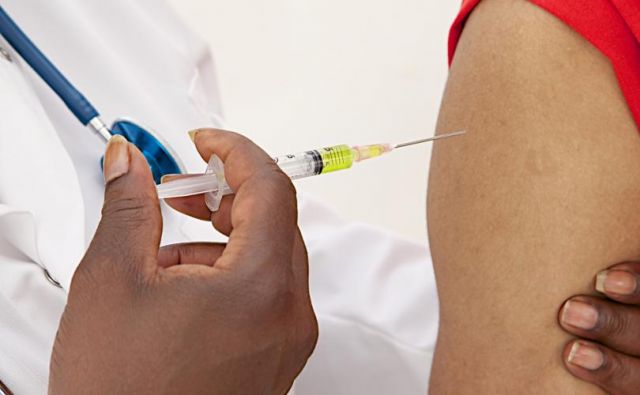
With only a few hundred doses per week, not much can be done to vaccinate as many...
CORONAVIRUS
by redazione

One million two hundred and fifty thousand vaccines in Kenya by next June.
After...
NEWS
by redazione

The situation of the vaccines made available so far to the 55 African states through the continental Africa...
NEWS
by redazione

Kenya continues to present, day after day, truly derisory rates of covid-19 positivity. By now, since the...
NEWS
by redazione

The first ready-to-use vaccine to be tested on humans could have its mass human trials in Kenya, even ...
CORONAVIRUS
by redazione
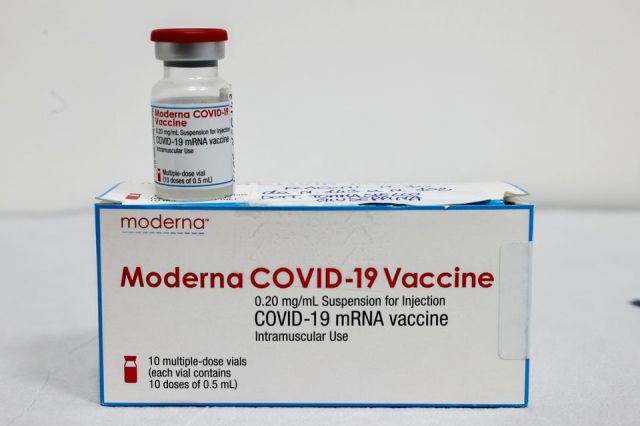
As of this morning, Monday 23 August, 880,000 doses of the Moderna vaccine, acquired by ...
NEWS
by redazione
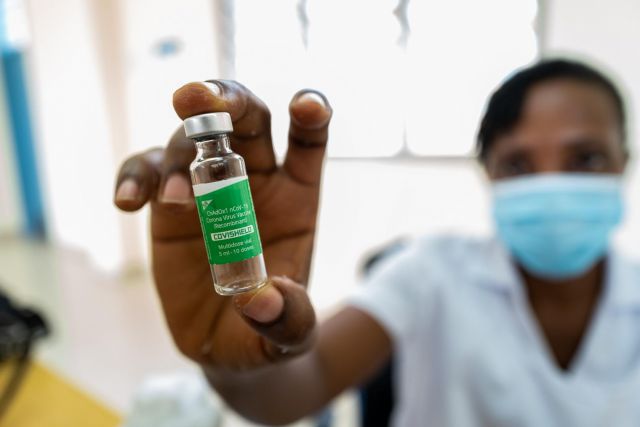
The European Union continues to refuse to recognise the AstraZeneca 'Covishield' vaccine used in...
CORONAVIRUS
by redazione

For what it means, in the last 48 hours a significant figure has emerged in Kenya: the percentage of...
CORONAVIRUS
by redazione
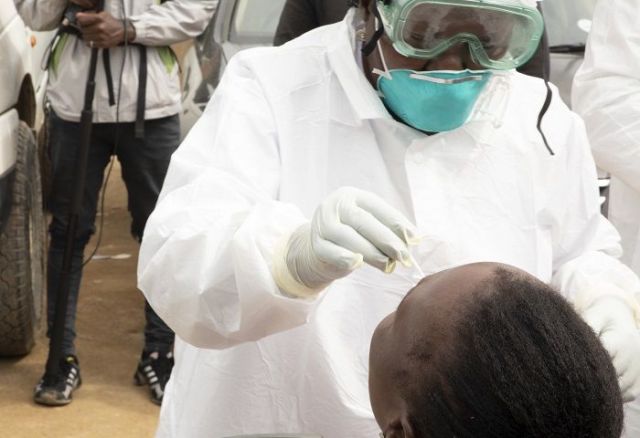
The Kenyan health authorities have also taken stock of the first ten months of the pandemic in...
CORONAVIRUS
by redazione

On the day Kenya officially receives its first vaccines from the African Covax programme, which...
CORONAVIRUS
by redazione
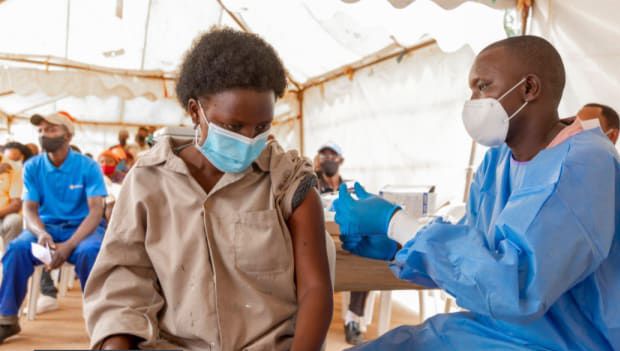
Kenya continues its march towards 10 million vaccines injected to its citizens, as per the Government's...
NEWS
by redazione

The outcry from the Kilifi County hospitality industry seems to have paid...
CORONAVIRUS
by redazione
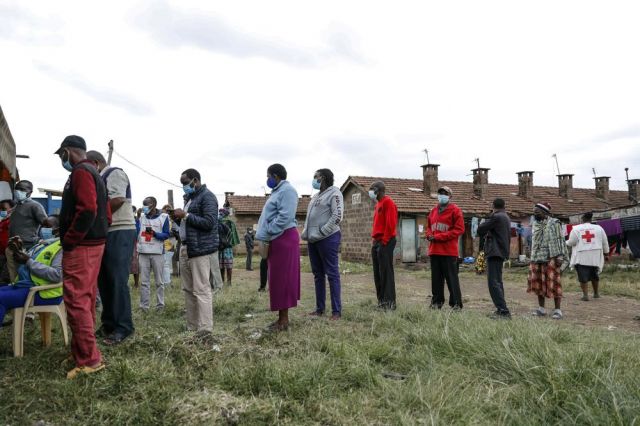
Despite new arrivals of vaccines (yesterday another 210 thousand AstraZeneca donated by Poland), in...
NEWS
by redazione

Kenya's program to align itself with the nations that have tourism as one of their major resources...